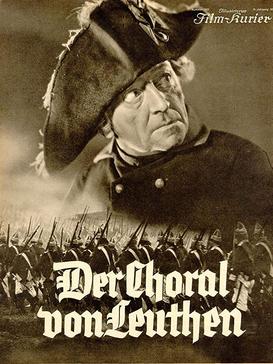
The Hymn of Leuthen is a 1933 German film depicting Frederick the Great, directed by Carl Froelich starring Otto Gebühr, Olga Chekhova and Elga Brink. It was part of the cycle of nostalgic Prussian films popular during the Weimar and Nazi eras. The title refers to the 1757 Battle of Leuthen.
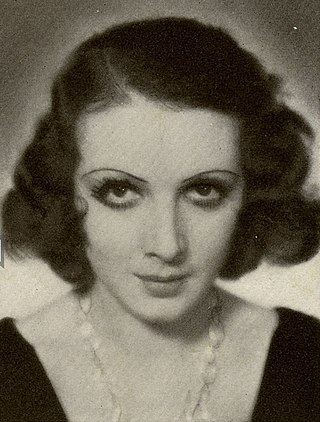
Philippine Amann, known professionally as Betty Amann, was an American film actress. Born to American parents in the German Empire, she began her acting career in the United States with the film The Kick-Off (1926). She is perhaps best known for her role in Asphalt (1929).
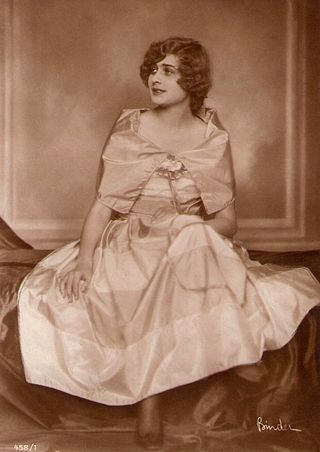
Lee Parry was a German film actress of the silent era. She appeared in more than 40 films between 1919 and 1939.

Harald Paulsen was a German stage and film actor and director. He appeared in 125 films between 1920 and 1954.

Otto Wallburg was a German actor and Kabarett performer. He was a prolific film actor during the late silent and early sound era. He was arrested by the Nazis when they occupied the Netherlands and was killed in Auschwitz in October 1944.
The Humble Man and the Chanteuse is a 1925 German silent film directed by E. A. Dupont and starring Lil Dagover, Olga Limburg and Margarete Kupfer. It was based on a novel by Felix Hollaender.
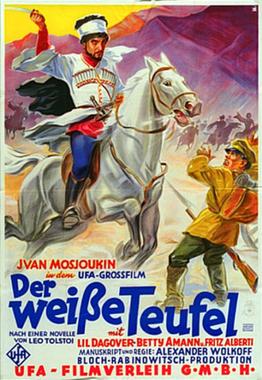
The White Devil is a 1930 German historical drama film directed by Alexandre Volkoff and starring Ivan Mozzhukhin, Lil Dagover and Betty Amann. It was based on Leo Tolstoy's 1912 novella Hadji Murat. It was originally made as a silent film, with a soundtrack added later. Anatole Litvak worked as the film's assistant director and production manager. It was shot at the Babelsberg Studios in Berlin. The film's sets were designed by the art directors Alexandre Lochakoff and Vladimir Meingard. After location shooting in Nice, Switzerland and the French Alps during 1929, it premiered at the Ufa-Palast am Zoo in January 1930.
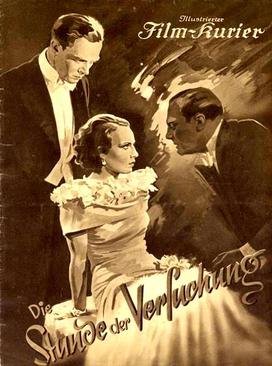
The Hour of Temptation is a 1936 German mystery film directed by Paul Wegener and starring Gustav Fröhlich, Lída Baarová and Harald Paulsen.

The Lady with the Mask is a 1928 German silent film directed by Wilhelm Thiele and starring Max Gülstorff, Arlette Marchal and Vladimir Gajdarov. It was shot at the Babelsberg Studios in Berlin. The film's sets were designed by the art director Erich Czerwonski.
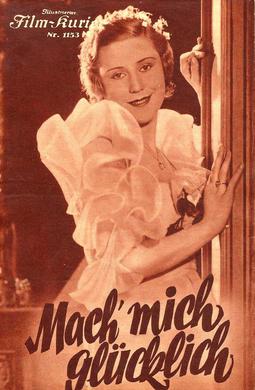
Make Me Happy is a 1935 German musical comedy film directed by Arthur Robison and starring Julia Serda, Albert Lieven and Richard Romanowsky. It was made by Germany's largest film company UFA. A separate French-language version Les époux célibataires was released, also directed by Robison. It was shot at the Babelsberg Studios in Berlin. The film's sets were designed by the art director Otto Hunte and Willy Schiller.

No Day Without You is a 1933 German comedy film directed by Hans Behrendt and starring Lee Parry, Oskar Karlweis, and Paul Hörbiger. It was shot at the Johannisthal Studios in Berlin.
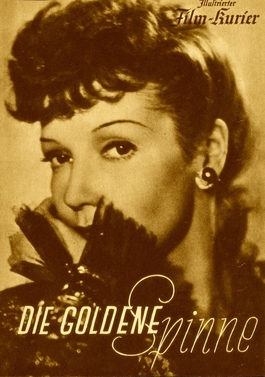
The Golden Spider is a 1943 German thriller film directed by Erich Engels and starring Kirsten Heiberg, Jutta Freybe, and Harald Paulsen.

Escapade is a 1936 German romantic comedy film directed by Erich Waschneck and starring Renate Müller, Georg Alexander and Grethe Weiser. It was shot at the Halensee Studios in Berlin. The film's sets were designed by the art directors Otto Erdmann and Hans Sohnle. It is based on the 1891 novel My Official Wife by Richard Henry Savage.

Tugboat M 17 is a 1933 German drama film directed by Heinrich George and Werner Hochbaum and starring Heinrich George, Berta Drews and Betty Amann. George, a prominent actor, directed much of the film before it was finished by Hochbaum. Location filming took place on the Ruppiner See. It portrays life on a German boat on Germany's inland waterways in the vicinity of Berlin.

A Thousand for One Night is a 1933 Czech-German comedy film directed by Max Mack and starring Claire Rommer, Trude Berliner and Harald Paulsen. A separate Czech-language version was also produced.

Hans in Every Street is a 1930 German crime film directed by Carl Froelich and starring Hans Albers, Camilla Horn, and Betty Amann. A separate French-language version was also released.

Search for Majora is a 1949 West German crime film directed by Hermann Pfeiffer and starring Lotte Koch, Hermann Speelmans and Camilla Horn.

The Valiant Navigator or The Brave Seafarer is a 1935 German comedy film directed by Hans Deppe and starring Paul Kemp, Lucie Englisch and Maria Krahn. It was based on a play by Georg Kaiser. The 1940 American film The Ghost Comes Home is an adaption of the 1935 German film.
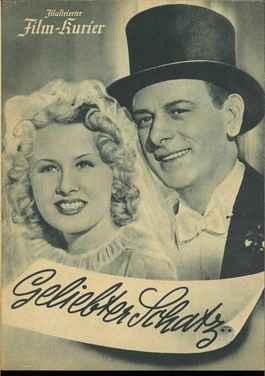
Beloved Darling is a 1943 German comedy film directed by Paul Martin and starring Johannes Riemann, Dorit Kreysler and Sonja Ziemann. It was shot partly at the Babelsberg Studios in Berlin. The film's sets were designed by the art directors Franz Bi and Bruno Lutz. It is based on the play Babusch by Hungarian writer Gábor Vaszary.

The Faithful Hussar is a 1954 West German comedy film directed by Rudolf Schündler and starring Paul Hörbiger, Loni Heuser and Harald Paulsen. It was shot at the Tempelhof Studios in West Berlin. The film's sets were designed by the art directors Willi A. Herrmann and Heinrich Weidemann. It takes its title from the traditional German song of the same title.



















